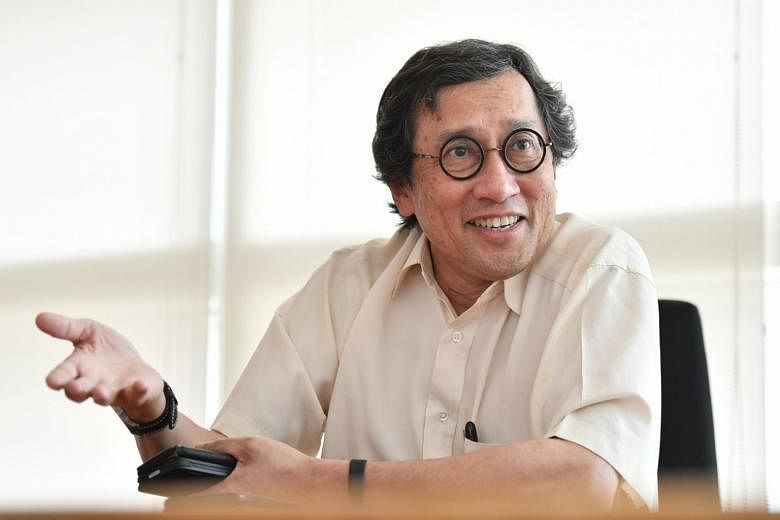United States President Donald Trump has decisively altered the orbit of the Sino-American relationship such that the strategic competition between the two sides will continue to send shock waves across the globe for a long time to come. But opportunities may still exist for South-east Asia, retired diplomat Bilahari Kausikan said.
This is provided Asean acts boldly to transform the 10-member grouping into a common market and production base that can boost regional economies, create new jobs and cushion the impact of external shocks.
Tit-for-tat trade tariffs may have grabbed headlines but more significant are recent laws that set a new statutory framework for US-China relations and cannot be easily changed even after Mr Trump leaves office, Mr Kausikan said.
He was delivering a keynote speech yesterday at a closed-door roundtable attended by regional policymakers, editors and analysts, organised by the Economic Research Institute for Asean and East Asia and the S. Rajaratnam School of International Studies.
The laws - the Foreign Investment Risk Review Modernisation Act that limits technology transfers to China and the National Defence Authorisation Act that views China as a strategic competitor - keep US-China relations on a trajectory that Mr Kausikan described as a "new phase of heightened long-term competition".
"Trump is not an aberration that will pass with the next administration," said Mr Kausikan, who now heads the National University of Singapore's Middle East Institute.
"His approach towards China is a correction to the perceived weakness of his predecessors. The perception that the US had been too accommodating towards China is shared by both (Republican and Democratic) parties and by diverse interest groups.
"Trump's core supporters believe that China had stolen their jobs. This is untrue... But the belief is a political fact that neither party can ignore. Trump's successor may be less abrasive and more predictable. But the probability is that whoever succeeds Trump will represent, at least in some degree, the same political phenomenon and will take a tough approach towards China."
China, which misread the implications of the global financial crisis of 2008 to 2009 as a sign of irrevocable US decline, has its own limitations, he said. "It is now abundantly clear that it is not just a simple matter of China buying more soya beans or Boeing aircraft from America to ease the trade deficit, as Beijing may have initially thought.
"What the Trump administration wants from China is not entirely clear, but will almost certainly require structural changes to the Chinese economy that the CCP (Chinese Communist Party) was already reluctant to make. And China has made clear it will not meet US demands under pressure."
For Asean, the implication is that it will have to "navigate a prolonged period of more than usual messiness and more than usual uncertainty". Short of a US-China war, which Mr Kausikan ruled out as improbable, Asean ought to be able to cope.
"But this will require greater agility, unity and resolve than Asean has shown in recent years."
Differences of opinion may induce "timidity", he said. "Hedging against the long-term uncertainties and taking advantage of whatever opportunities may exist requires Asean to move boldly on the second phase of economic integration which aims at creating a common market and common production platform in South-east Asia. Here, the key success factors are the domestic politics of Asean member states; that is to say in our own hands and not in the policies of China or the US," he said.
Some participants took an optimistic view of Asean's ability to get the best deal when it is being courted by the US' security-oriented Indo-Pacific strategy and China's Belt and Road Initiative. There is no consensus within Asean on how to respond.
"Asean is yet to put flesh on the bones," said Mr Kavi Chongkittavorn, senior fellow at the Institute of Security and International Studies, Chulalongkorn University. "It may not be wagyu beef, but it could be a fillet mignon."


